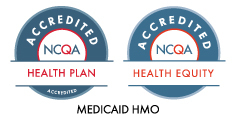California Governor Gavin Newsom declared a State of Emergency on Aug. 1 to support ongoing monkeypox vaccination efforts. Monkeypox is a public health concern because the illness is present in California, the case count is increasing and testing for the disease has only recently become more available.
Transmission occurs through prolonged direct contact, including sexual and intimate encounters. It can be spread by infected humans, animals and materials contaminated with the virus. It is important to remember that any person, regardless of gender identity or sexual orientation, can acquire and spread monkeypox.
Clinical presentation
Monkeypox might start with flu-like symptoms including fever, low energy, swollen lymph nodes and general body aches. Within 1 to 3 days (sometimes longer) after the appearance of fever, an infected person can develop a rash or sores. The sores will go through several stages, including scabs, before healing. They can look like pimples or blisters and may be painful and itchy.
Rash often starts in genital and perianal areas or orally. Depending on when a patient presents, progression of lesions may not appear characteristic, especially if lesions appear in early stages of infection. Rash location is likely reflective of points of contact. Proctitis may be a patient’s initial complaint.
It is important to be alert to potential cases. Lesions may be confused with sexually transmitted infections (STIs) or other conditions. However, the diagnosis of an STI does not exclude monkeypox, as a concurrent infection may be present. For comprehensive information about monkeypox’s epidemiology, clinical presentation, management of contacts and submission of specimens, refer to your local health department or the California Department of Public Health.
Vaccination billing
Free monkeypox vaccines are being distributed to primary care clinics from the Strategic National Stockpile by local health departments for post-exposure prophylaxis. According to national coding guidelines, providers should report immunization services by listing the applicable immunization administration CPT code(s) in addition to the vaccine/toxoid CPT code(s).
| Vaccine Codes | |
| Code | Description |
| 90611 | JYNNEOS vaccine, also referred to as Imvamune or Imnavex, is the smallpox and monkeypox vaccine, attenuated vaccinia virus, live, non-replicating, preservative free, 0.5 mL dosage, suspension, for subcutaneous use. |
| 90622 | ACAM2000 is the vaccinia (smallpox) virus vaccine, live, lyophilized, 0.3 mL dosage, for percutaneous use. |
Medi-Cal providers can bill for vaccine administration using the following code:
| Code | Description |
| 90471 | Immunization administration (includes percutaneous, intradermal, subcutaneous or intramuscular injections); 1 vaccine (single or combination vaccine/toxoid). |
Source: DHCS Provider Manual.
For additional information on vaccines, see the following resources:
- Vaccine Fact Sheet for Providers
- Vaccination information sheets for patients (also available in Spanish).
Testing
Testing for specimens may be collected following CDC guidelines.
Specimens should be submitted to the state laboratory system or a private laboratory in coordination with your local health department. Private labs offering monkeypox testing are listed below:
If specimens are submitted to a private laboratory for testing, it is critical to notify your local health department. Testing may be billed to the Alliance. Please ensure that the member’s Alliance ID is included in the laboratory order.
Treatment
Contact your local health department to assess and support treatment if indicated.
County of Merced
Disease Surveillance & Investigation Unit
Phone: 209-381-1020
After hours/weekends: 209-725-7011
County of Monterey Health Department
Communicable Disease Unit
Phone: 831-755-4521
Confidential Fax: 831-775-8076
After hours/weekends: 831-755-5100 (Ask to speak with the Hazardous Materials Team to reach the on-call public health professional).
You can also visit their website.
Santa Cruz County Health Services Agency
Public Health: Communicable Disease Control
Phone: 831-454-4114
Confidential Fax: 831-454-5049
After hours/weekends: 831-471-1170
Email: [email protected]
You can also visit their website.



